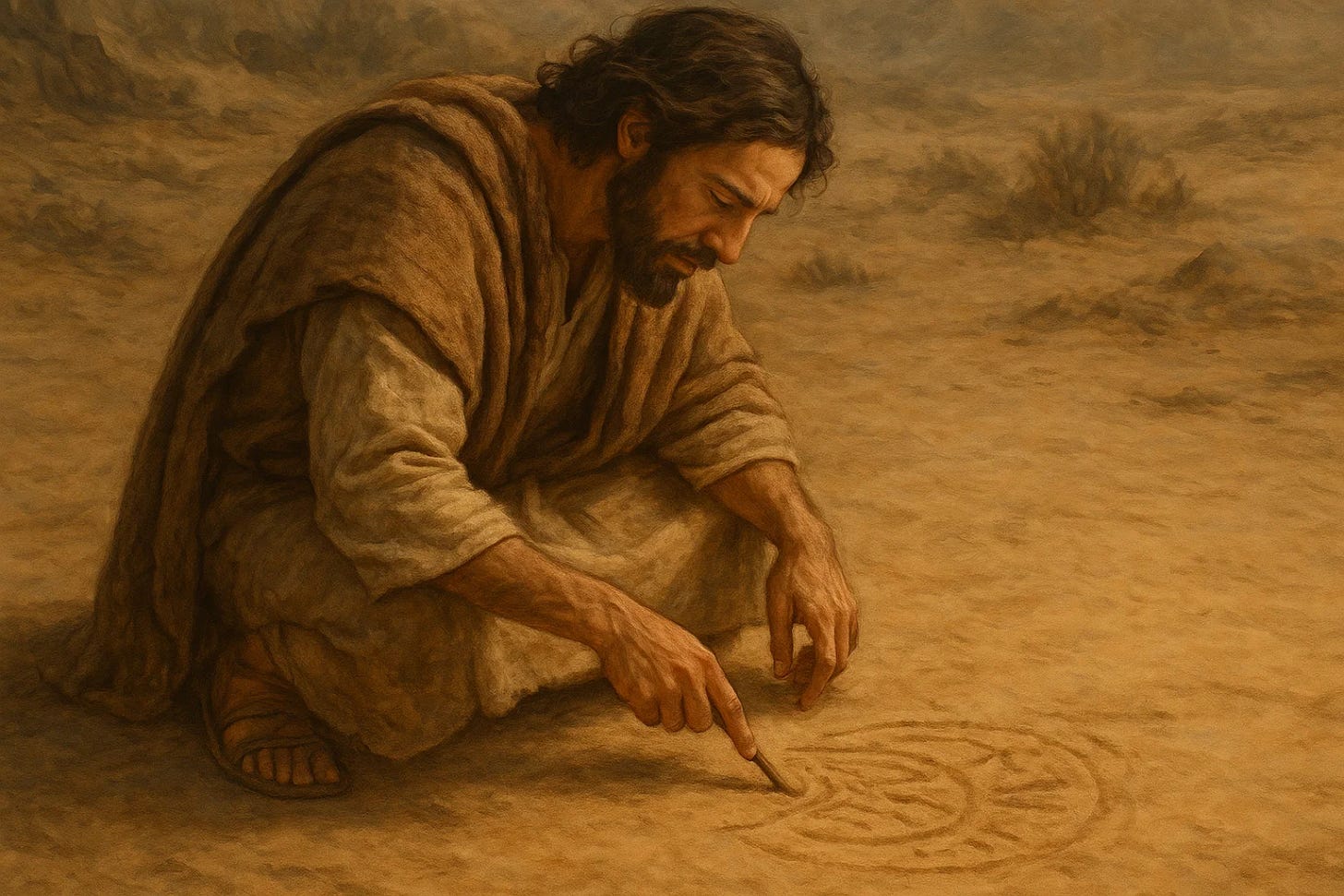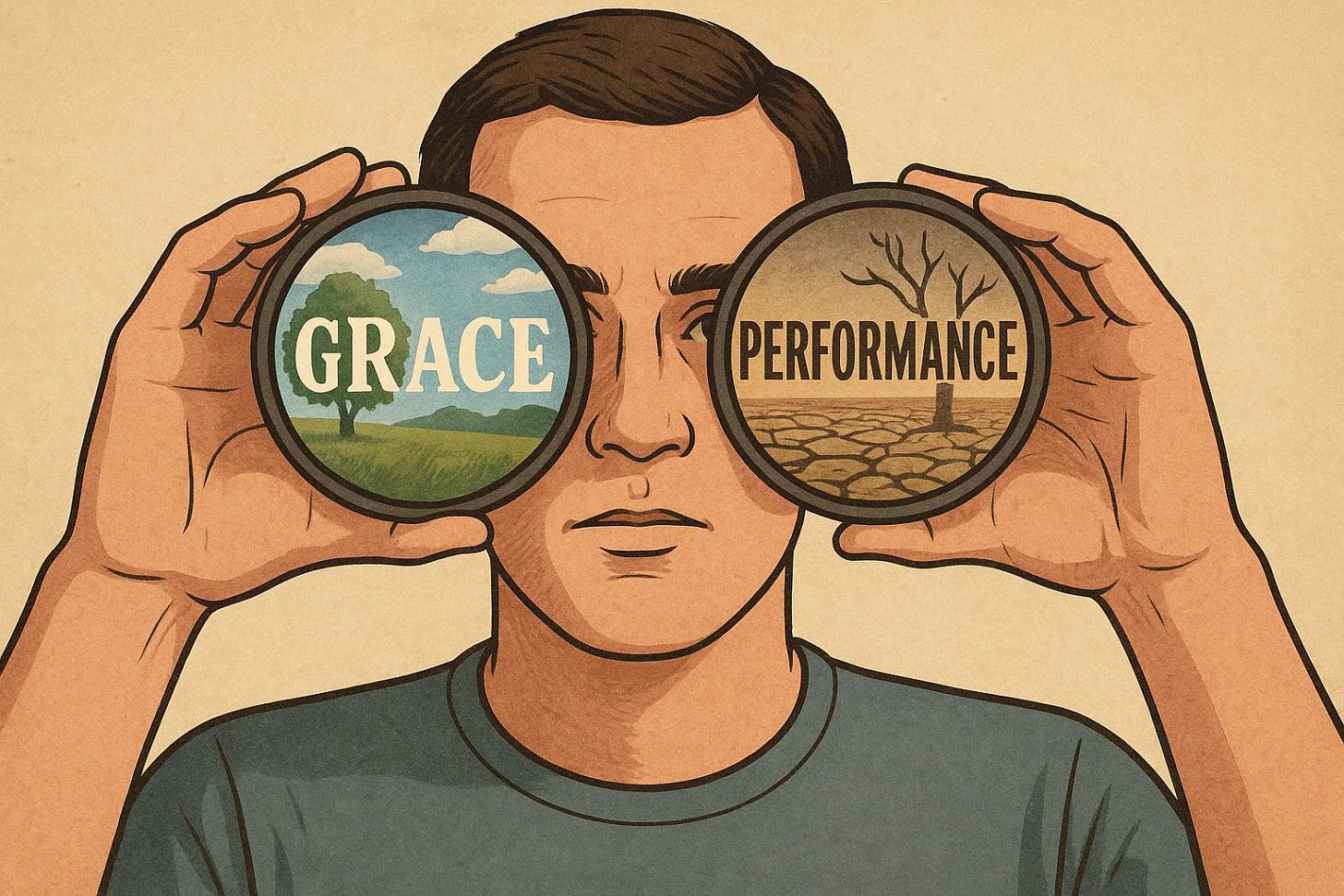How to Read Scripture Through the Lens of Grace, Love, and Jesus — Step-by-Step
What Happens When You Read the Bible through the Lens of Grace, Not Guilt
You can’t just ask, “What does this verse mean?” You must also ask, “What does this verse reveal about God’s heart?”
Once your lens shifts from performance to grace—from rules to relationship—you begin to see passages you've known your whole life in an entirely new way. The Bible becomes less about what’s wrong with you and more about what’s right with God.
This article will walk through four well-known passages using the seven grace-based lens questions from the previous lesson.
Passage 1: Genesis 3 – The Fall
Common Lens:
God shows up angry. Adam and Eve disobey. They’re punished. Case closed.
Grace-Based Lens Walkthrough:
What does this reveal about who God is?
He comes seeking, not scolding. “Adam, where art thou?” is not an interrogation—it’s the heart cry of a Father who won’t walk away.Does this passage show Him angry and distant, or loving and near?
God steps into the garden, not away from it. He initiates the conversation, even while they’re hiding.Where is Jesus in this passage?
Genesis 3:15 is the first whisper of the gospel—the seed of the woman will crush the serpent’s head.Who moved first—God or man?
God moved. Man hid. God pursued.Am I invited to trust or pressured to perform?
God covers their nakedness Himself. The fig leaves of self-effort weren’t enough. Only grace covers shame.What does this say about who I am in Christ?
Even in failure, I am sought after. Not cast aside.Am I reading this with fear or with love?
Through love, this story becomes the beginning of redemption, not rejection.
Passage 2: Psalm 51 – David’s Confession
Common Lens:
Repentance means begging God for mercy and proving how sorry you are.
Grace-Based Lens Walkthrough:
What does this reveal about who God is?
David cries, “Have mercy upon me, O God, according to thy lovingkindness.” He appeals to God’s character, not his own performance.Does this passage show Him angry and distant, or loving and near?
God is present, compassionate, and ready to cleanse and restore.Where is Jesus in this passage?
The only cleansing strong enough to “wash me thoroughly” is the blood of Christ. This psalm points forward to that reality.Who moved first—God or man?
Even in repentance, David turns to God because of His consistent mercy. His steadfast love draws us to Him.Am I invited to trust or pressured to perform?
There is no performance in Psalm 51—only surrender. David knows he can’t fix himself. He needs grace.What does this say about who I am in Christ?
I am not a project to repair—I’m a child to restore.Am I reading this with fear or with love?
Fear avoids confession. Love leads to it.
Bonus Insight on Repentance:
This passage shows us that repentance isn’t self-rejection. It’s self-forgetfulness. It’s turning from self-centeredness to Christ-centeredness. It’s the moment when we stop staring at our sin and start seeing God's mercy.
Passage 3: Luke 15 – The Prodigal Son
Common Lens:
The son messed up. He came back. The Father accepted him because he apologized.
Grace-Based Lens Walkthrough:
What does this reveal about who God is?
The Father sees him “a great way off” and runs. He’s not waiting with crossed arms. He’s sprinting with open arms.Does this passage show Him angry and distant, or loving and near?
Near. Loving. Intimate. He falls on the boy’s neck. There’s no lecture, no delay.Where is Jesus in this passage?
Jesus tells this story to reveal the heart of the Father: the shepherd who finds, the woman who searches, and the Father who runs.Who moved first—God or man?
The son turns home—but it’s the Father who sees, runs, embraces, and restores before the son can even give his speech.Am I invited to trust or pressured to perform?
The son tries to earn a spot as a servant. The Father won’t have it. He declares him son, robe, ring, and feast included.What does this say about who I am in Christ?
I’m not returning to be tolerated. I’m returning to be celebrated.Am I reading this with fear or with love?
Love is on every line of this story. Fear has no place at this table.
Passage 4: John 8 – The Woman Caught in Adultery
Common Lens:
Jesus got her off the hook, but He warned her to behave or else.
Grace-Based Lens Walkthrough:
What does this reveal about who God is?
He stoops down into the dirt with her. He lifts her up with words of freedom, not fear.Does this passage show Him angry and distant, or loving and near?
Near. Defending. Forgiving.Where is Jesus in this passage?
Front and center. Defending the accused. Exposing the religious. Restoring the broken.Who moved first—God or man?
She didn’t even ask for mercy. Mercy found her.Am I invited to trust or pressured to perform?
“Neither do I condemn thee.” That’s the starting point. Then: “Go and sin no more.” Not a warning—an empowerment.What does this say about who I am in Christ?
I am not defined by my worst moment. I am spoken for by the One who kneels beside me in grace.Am I reading this with fear or with love?
Love is louder than the stones. Love is stronger than the law. Love writes in the dust instead of etching in stone.
Summary
Genesis 3
God’s Initiative “Where are you?”
Jesus Revealed The promised seed.
Response Invited Covered in grace, not fear.
Psalm 51
God’s Initiative Mercy-based, not merit-based.
Jesus Revealed Cleansing foreshadowed.
Response Invited Trust, not penance.
Luke 15
God’s Initiative The Father ran.
Jesus Revealed The heart of God
Response Invited Restored as sons, not servants.
John 8 8
God’s Initiative Neither do I condemn.
Jesus Revealed The Advocate.
Response Invited Go in freedom, not fear
Reflection: Journal Prompts
What’s one passage I’ve always read through fear that I need to revisit through love?
Where have I mistaken repentance for self-punishment instead of turning to God in trust?
What surprised me most about how God moves first in these stories?
Where do I still feel like I need to “earn my way” in my relationship with God?
What would it look like to read every passage asking, “Where is Jesus in this?”
For Discussion
Which of the four passages most challenged how you’ve read the Bible in the past?
What is one religious idea you’ve had to unlearn in light of grace?
How does this lens affect how you relate to others, especially those who fail?
Share a time when a familiar Bible verse came alive in a new way through the lens of love.
How can we support each other in continuing to read the Bible with this grace-centered lens?










Wonderful thought: Love writes in the dust instead of etching in stone!